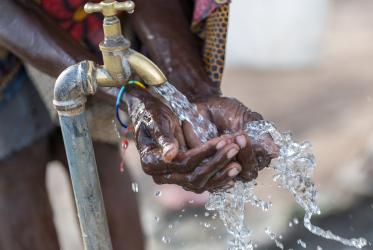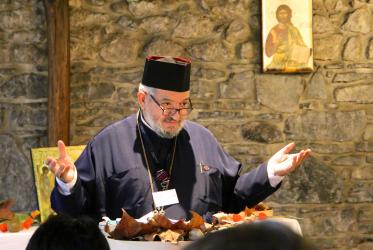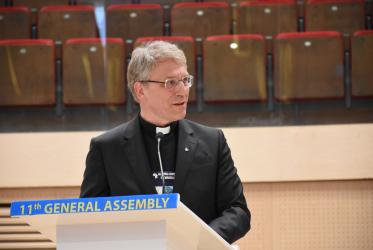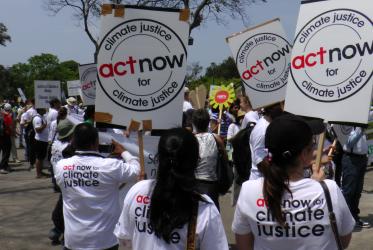Displaying 1 - 20 of 28
Pandemic and pedagogy: what are the valuable lessons?
21 December 2022
WCC general secretary addresses global Pentecostal gathering
09 September 2016
Churches' “prophetic voice” will be busy in 2015
18 June 2015











